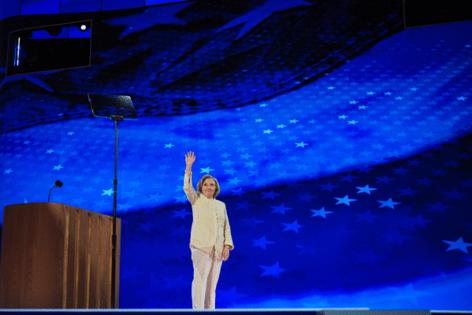John M. Crisp: Will the US ever elect a woman president?
Published in Op Eds
Will the U.S. ever elect a woman president? I first considered this question in a column I wrote in August of 2016. Hillary Clinton, Yale-educated lawyer, former first lady, former senator from New York and former secretary of state, was running for president. Her opponent was a guy named Donald Trump, a reality TV star and a businessman of indifferent success who had a reputation for stiffing contractors, skirting the rules and getting in trouble for declining to rent to Black renters.
Trump was also known for infidelity, divorce and a long series of demeaning remarks about women. In fact, a couple of months after I wrote my column, Trump was caught on tape bragging about being able to commit sexual assault with impunity if you’re a celebrity.
In short, Hillary Clinton’s chances for becoming the first woman president looked good; America chose Trump.
But my column wasn’t necessarily in support of Clinton herself; I wondered if women could bring something to the White House from which the country could benefit.
I tried to avoid thorny questions about innate differences between men and women, but I suggested that boys and girls are socialized differently, which might mean that girls grow up with values and qualities that are different from boys’ and that could be valuable in our nation’s highest office.
For example, it’s difficult to imagine a woman whose favorite movie is “Patton” and who would watch it obsessively, as Richard Nixon did while he was pursuing a misguided war in Vietnam, bombing civilians and invading Cambodia.
It’s hard to imagine a woman so infatuated with the mythical qualities of Davy Crockett and Jim Bowie that she could say, as Lyndon Johnson once did about Vietnam, “Hell, it’s just like the Alamo.”
And what woman would say “Bring ‘em on” to people whom she believes are intent on killing us, as George W. Bush challenged Iraqi insurgents to do.
In 2016, I suggested that this is the sort of swaggering, tough-guy bravado that’s learned by boys on the playing fields of their elementary schools and reinforced on the football field, in boot camp and, in George Bush’s case, jet pilot school. Many men get over it, but many don’t. And when the ones who don’t make their way into high public office, our foreign policy can become hyper-aggressive and heavy-handed, a blustery macho test of who blinks first.
Women leaders, of course, can be strong and resolute, as well—Margaret Thatcher and Golda Meir come to mind. But after growing up with less physical strength, women may be less likely to turn to force as the first resort; they may be willing to talk rather than bluff or bluster, to negotiate rather than fight. This isn’t weakness so much as it is wisdom. Or so I naively speculated in the innocent days of 2016.
Now a woman has again lost the presidency to man—in fact, the same man! If anything, that man embodies more bullying machismo than he did eight years ago. In the meantime, he’s been adjudged liable for sexual assault and for defaming a particular woman while he continues to defame others.
Trump has nominated a few women for roles in his administration, but they tend to reflect his version of manly values: Linda McMahon founded the WWE, and Kristi Noem is best known for bragging about shooting a dog that seemed, to her, untrainable.
And the men coming into power? J.D. Vance’s views on women aren’t exactly enlightened. Pete Hegseth, Trump’s nominee to head the Department of Defense, says that women have no place in combat. (I look forward to watching him rationalize that position to war hero Sen. Tammy Duckworth.)
Even Hegseth’s mother once called him a man who “belittles, lies, cheats, sleeps around and uses women for his own power and ego.” At least Trump’s mother never said that aloud.
Alas, our slow, fitful progress toward electing a woman president has gone into reverse. My eight-year-old hopes for a new paradigm that favors negotiation over power, community over conflict and maternalism over machismo seem quaint or naïve and, for the present at least, increasingly elusive.
———
___
©2024 Tribune Content Agency, LLC




























































Comments